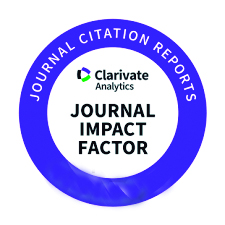Formación de profesores de música en Inglaterra: ¿cuál es la música que se enseña en los centros de secundaria?
Resumen
Este artículo describe las cuestiones políticas y prácticas que rodean la formación de los futuros profesores de música en Inglaterra. Se habla de la regulación gubernamental y la interferencia ministerial en muchos aspectos, desde el número de personas que acceden a la profesión hasta la naturaleza de lo que realmente se enseña y aprende en las aulas de secundaria. A partir de los datos de la investigación, se describe cómo hay una serie de aspectos de la enseñanza y el aprendizaje que son polémicos y que pueden tener una función excluyente. Por último, sugiere que un público internacional puede tener mucho que aprender de esta situación.
Palabras clave
Texto completo:
PDF (English)Referencias
All-Party Parliamentary Group for Music Education, Incorporated Society of Musicians, & University of Sussex. (2019). Music Education: State of the Nation. London: Incorporated Society of Musicians.
Arnold, M. (1896/1993). Arnold, M 1896/1993 Culture and Anarchy and Other writings (Ed. Collini, S). Cambridge: Cambridge University Press.
Bruner, J. (1996). The Culture of Education. Cambridge Mass: Harvard UP.
DfE. (2013). Music programmes of study: key stage 3. Retrieved from https://www.gov.uk/government/uploads/system/uploads/attachment_data/file/239088/SECONDARY_national_curriculum_-_Music.pdf
Espeland, M. (1999). Curriculum Reforms in Norway: An Insider's Perspective. Arts and Learning Research, 15(1), 172-187.
Ewell, P. A. (2020). Music Theory and the White Racial Frame. Music Theory Online, 26(2). Retrieved from https://mtosmt.org/issues/mto.20.26.2/mto.20.26.2.ewell.php
Fautley, M. (2016). Teach Through Music Evaluation Report. Retrieved from Birmingham: https://www.trinitylaban.ac.uk/sites/default/files/ttm_independent_evaluation.pdf
Fautley, M. (2017a). The Location of Creativity in Curriculum and Assessment in the Lower Secondary School in England. In R. Girdzijauskiene & M. Stakelum (Eds.), Creativity and Innovation: European Perspectives on Music Education(Vol. 7, pp. 71-84). Innsbruck: Helbling.
Fautley, M. (2017b). Notation and music education. British Journal of Music Education, 34(2), 123-126.
Gibb, N. (2019, 11/1/19). Forget Spotify: I want every child to leave primary school able to read music. The Times. Retrieved from https://www.thetimes.co.uk/article/forget-spotify-playlists-every-child-should-know-how-to-read-music-bdxnjlt75
Gove, M. (2011). Speech: Michael Gove to Cambridge University. London: DfE Retrieved from https://www.gov.uk/government/speeches/michael-gove-to-cambridge-university
Heffer, S. (2007). Thank Marx for our children's low marks. The Daily Telegraph - online edition. Retrieved from http://www.telegraph.co.uk/comment/personal-view/3644070/Thank-Marx-for-our-childrens-low-marks.html
Hirsch, E. D. (1987). Cultural literacy: What every literate American needs to know. In: Boston, MA: Houghton Mifflin.
Holder, N (2020) www.nateholdermusic.com/post/if-i-were-a-racist, Accessed July 2020
Johnson, J. (2002). Who needs classical music?: cultural choice and musical value. New York: Oxford University Press.
Moore, A. (2014). Understanding the school curriculum: Theory, politics and principles. Abingdon: Routledge.
Moore, R., & Young, M. (2001). Knowledge and the curriculum in the sociology of education: Towards a reconceptualisation. British Journal of Sociology of Education, 22(4), 445-461.
Morrison, R. (1991, 13/02/1991). A Generation Drummed Out. The Times. Retrieved from https://www.nexis.com/
Ofsted. (2019). School Inspection Handbook (November 2019, No. 190017). London: Ofsted.
Roberts, N., & Danechi, S. (2019). FAQs: Academies and free schools. London: House of Commons LIbrary.
Routledge on-line (2016) http://routledgesoc.com/category/profile-tags/cultural-capital, Accessed July 2020
See, B. H., & Gorard, S. (2020). Why don’t we have enough teachers?: A reconsideration of the available evidence. Research Papers in Education, 35(4), 416-442. doi:10.1080/02671522.2019.1568535
Shepherd, J., Virden, P., Vulliamy, G., & Wishart, T. (1977). Whose Music? A Sociology of Musical Languages. London: Transaction Books.
Spruce, G., & Matthews, F. (2012). Musical ideologies, practices and pedagogies. In C. Philpott & G. Spruce (Eds.), Debates in music teaching(pp. 118-134). Abingdon: Routledge.
ucas.com no date (A) https://www.ucas.com/teaching-in-england, Accessed June 2020 ucas.com no date (B) https://www.ucas.com/postgraduate/teacher-training/train-teach-england/routes-teaching-england?filter=, Accessed June 2020
Ward, H. (2019). One in three teachers leaves within five years. TES. Retrieved from https://www.tes.com/news/one-three-teachers-leaves-within-five-years
Williams, R. (2010, Mon 17 May 2010). New minister Nick Gibb upsets teachers – already. The Guardian. Retrieved from https://www.theguardian.com/education/mortarboard/2010/may/17/nick-gibb-upsets-teachers
Wright, R. (2002). Music for all? Pupils' perceptions of the GCSE Music examination in one South Wales secondary school. British Journal of Music Education, 19(3), 227-241.
Young, M. (1999). The Curriculum as Socially Organised Knowledge. In R. McCormick & C. Paechter (Eds.), Learning and Knowledge. London: Paul Chapman/Open University.
Young, M., & Muller, J. (2013). On the powers of powerful knowledge. Review of education, 1(3), 229-250.
Enlaces refback
- No hay ningún enlace refback.
Copyright (c) 2022 Martin Fautley



1.jpg)

 ,
,